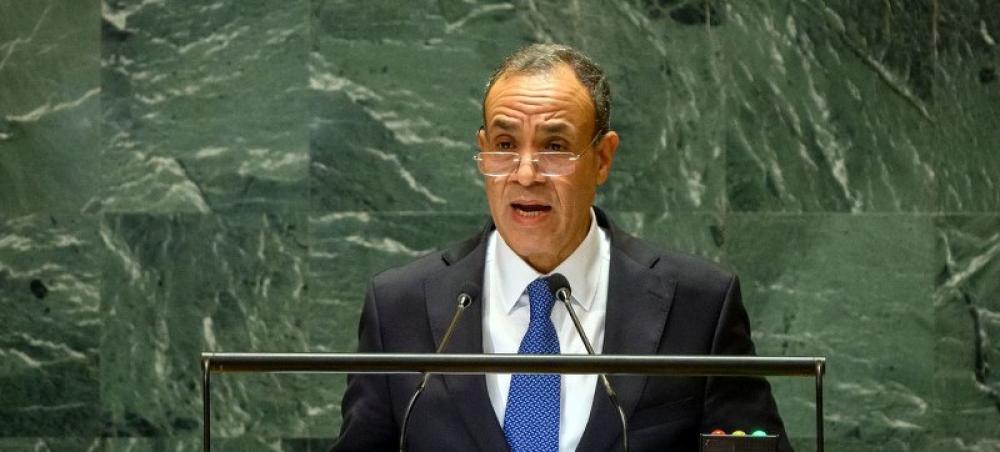Just Earth News | @justearthnews | 29 Sep 2024, 08:31 am Print
 Egypt
Egypt Photo Courtesy: UN Photo/Loey Felipe
Egypt’s Foreign Affairs Minister Badr Ahmed Mohamed Abdelatty said it is time to “ring the alarm bells” as the international system is currently showing its structural shortcomings that come from ineffectiveness, double standards and inequality at a time of occupation, hunger, terrorism and injustice. Sketching out a path forward, he first stressed that there is no alternative to the multilateral system.
At the same time, Israel’s brutal aggression against Gaza and its current attacks on the West Bank place shame on international institutions, which are unable to put an end to these aggressions. Condemning Israel’s escalation and its attacks on Lebanon, which are “pushing the region into the abyss”, he said efforts must “put an end to the bloodshed” and a start to the immediate delivery of humanitarian assistance to civilians in Gaza.
Outlining other steps, he said multilateral banks must be modernised, and international institutions must be made more representative. He also voiced Egypt’s support for an expanded Security Council with more permanent seats, including for African nations.
As for mounting climate challenges, he said efforts must be linked to adequate resources to do so, including through the Loss and Damage Fund, alongside national plans that align with the agreed Sustainable Development Goals (SDGs).
In this vein, Cairo will continue to work on development initiatives with neighbours and partners in the Nile Basin. However, Egypt remains concerned about Ethiopia’s actions related to the Renaissance Dam project, which do not consider the needs of nations living downstream.
Still, the world needs the UN to address a range of challenges from cybercrime and artificial intelligence to collective security. On the latter, maintaining peace and security is the raison d’être of the Organization, he said, regretting to note that some global agreements, including nuclear non-proliferation treaties, are being flouted. At the same time, the Security Council has been unable to stop ongoing conflicts.
Committed to strengthening the UN’s role, he said the root causes of conflict must be addressed and efforts much be bolstered to truly maintain peace. One way to resolve the outbreak crises is to strengthen State institutions so they can fill vacuums created by political insecurity, he added.
For its part, Egypt remains committed to working with regional and international partners to revitalise the multilateral system, he said. Despite ongoing crises and challenges, Egypt will continue working to bolster its human capital through a national dialogue that prioritises human rights and democracy and to maintain peace and security in the region and the world over.
“Our young people will take forward this vision,” he said. “They are the ones who will craft their future and preserve human lives without discrimination on the basis of race, gender or otherwise, all within the multilateral system.”
- United Kingdom launches eVisa for Indian visitors starting today — Here’s what travellers need to know
- Abandoned at birth, Punch the macaque finds global love as crowds flock to Tokyo zoo
- YouTube Premium Lite just got a massive boost — Know all details
- Trump claims he stopped 35 million deaths by stopping India-Pakistan war
- Entrepreneur decides to shut down 16-year old eatery in London, cites harassment and Pakistani attacks





-1763561110.jpg)
